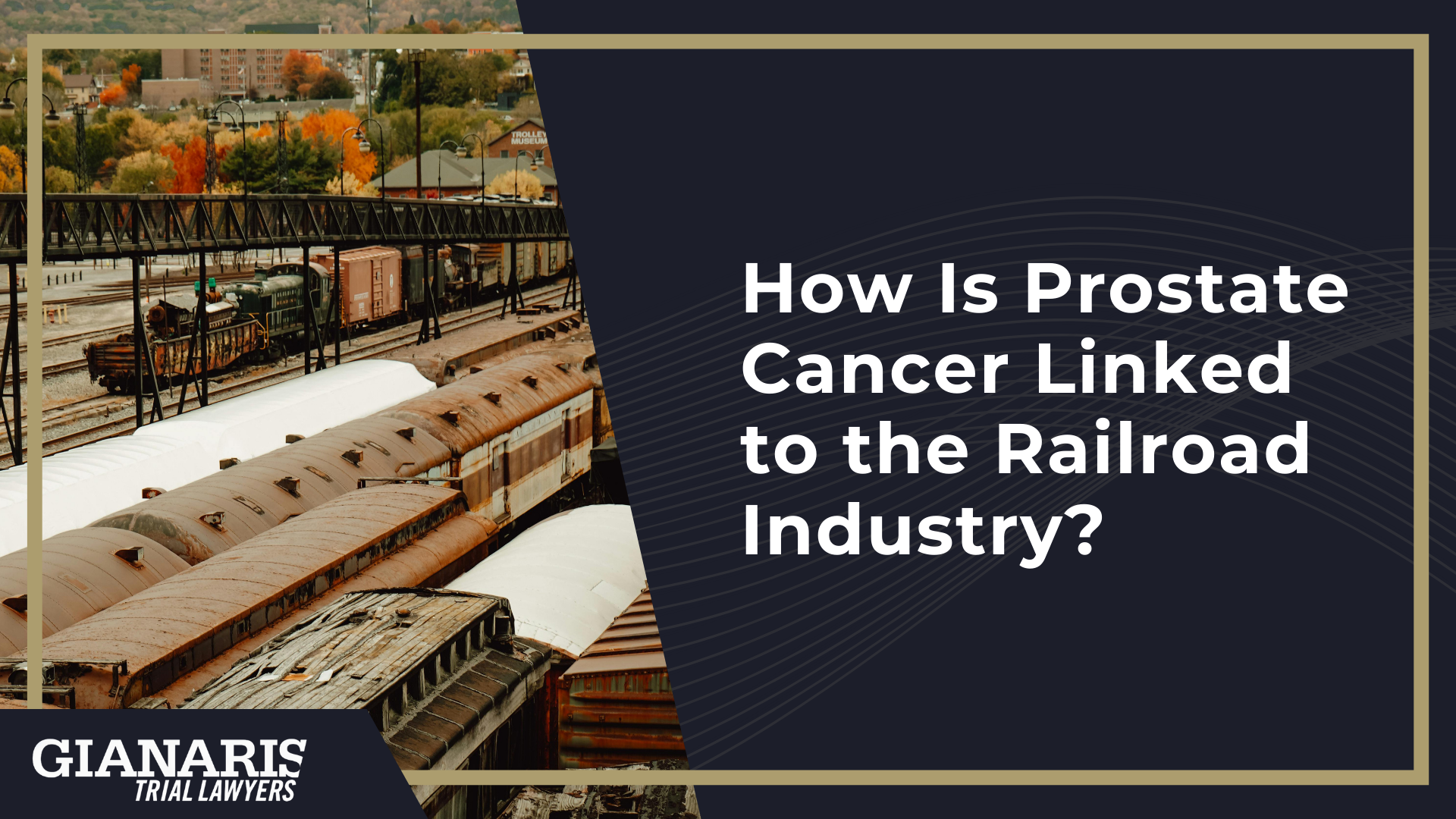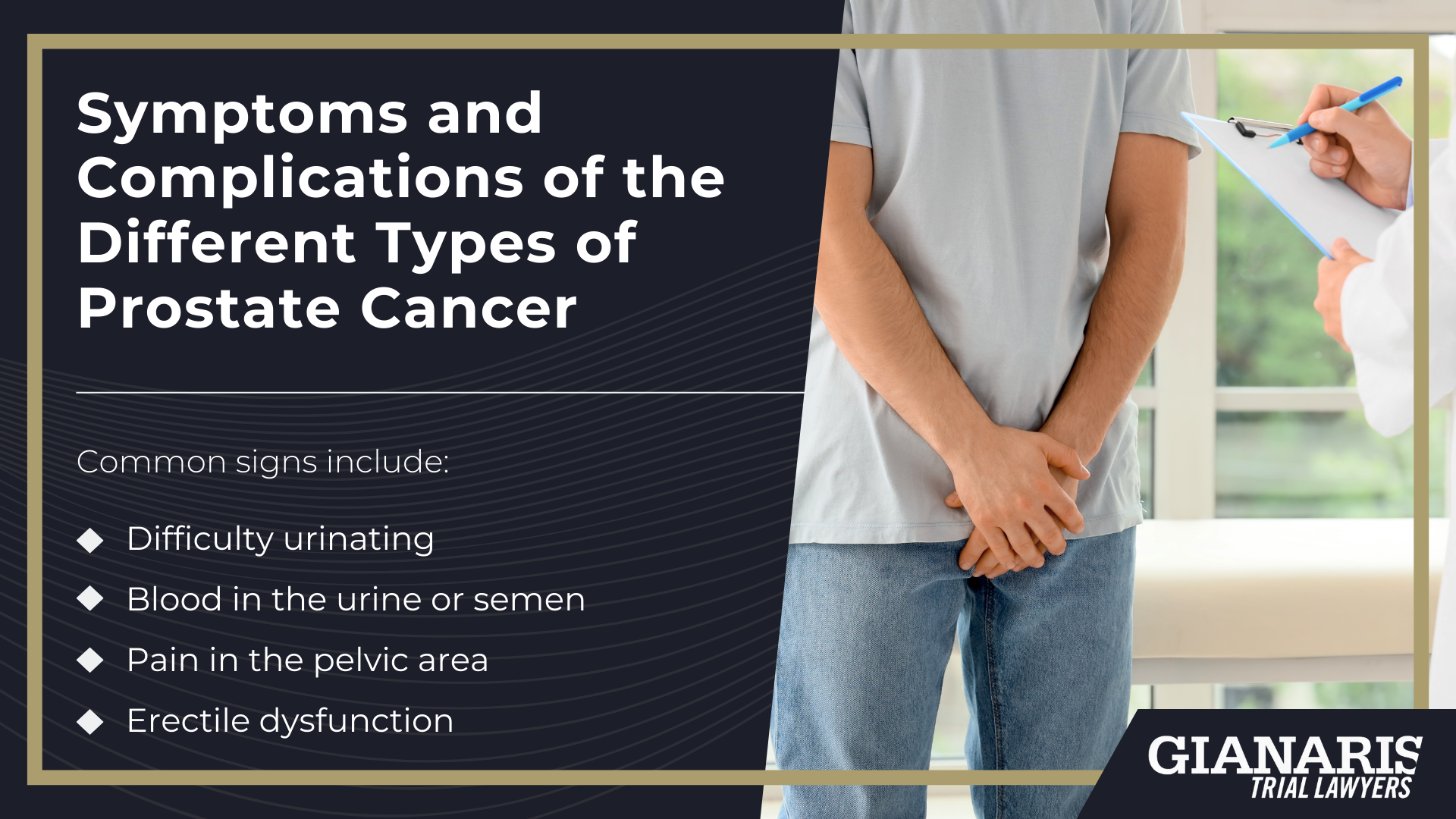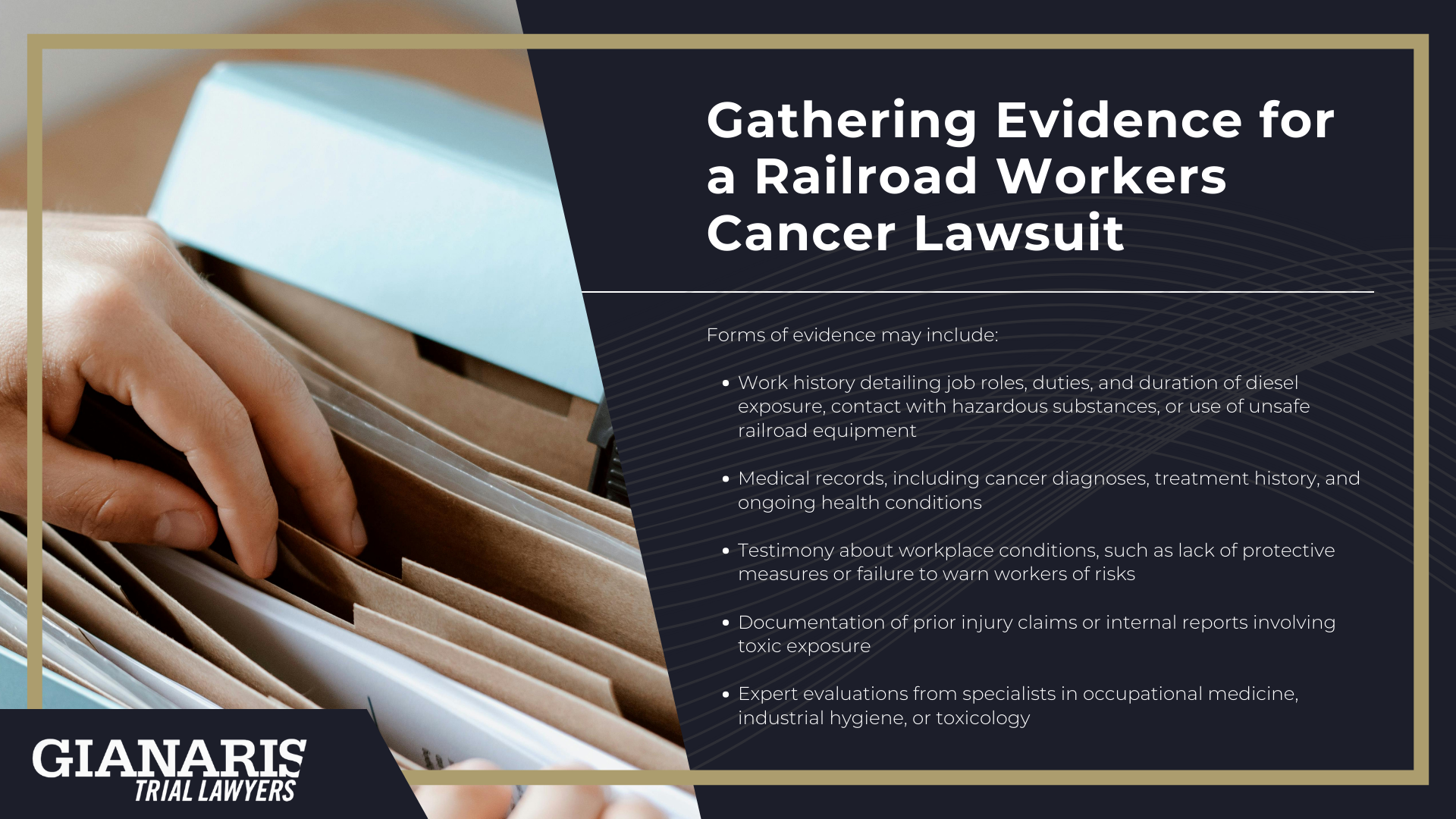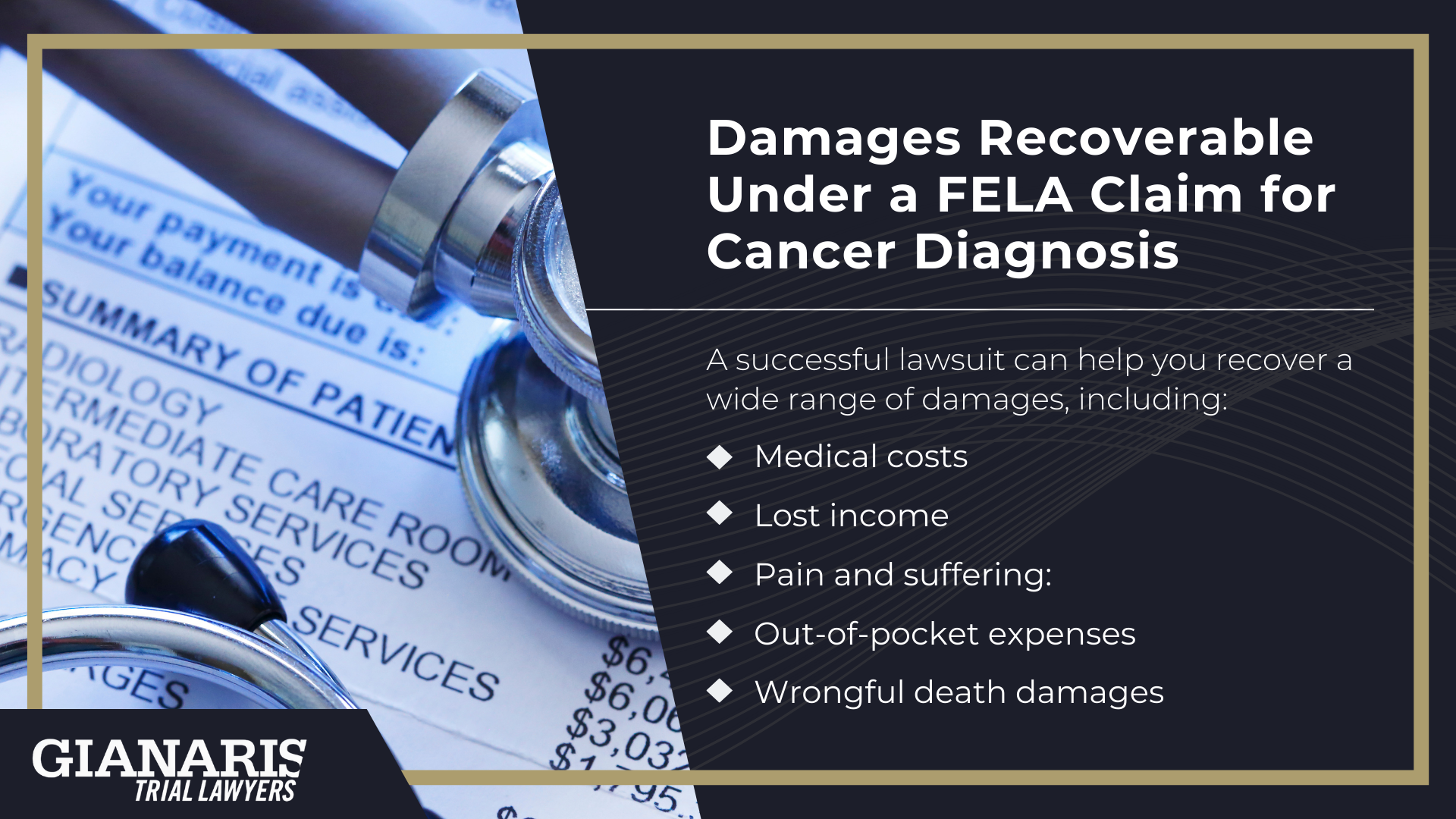Railroad workers have long faced occupational exposure to harmful substances known to affect internal organs and increase the risk of certain cancers—including prostate cancer.
Diesel exhaust, solvents, industrial degreasers, and creosote from railroad ties were commonly encountered across various job duties in the railroad industry.
Over time, prolonged exposure to these substances has been linked to serious health conditions, including a growing number of prostate cancer diagnoses in former and current railroad workers.
Railroad prostate cancer lawsuits are being filed under the Federal Employers Liability Act (FELA), which allows injured railroad workers to seek compensation from their employers when negligence contributed to their illness.

These cases argue that railroad companies failed to provide adequate protective measures, proper ventilation, or warnings about the long-term health risks of toxic exposure.
If you or a loved one received a prostate cancer diagnosis after years of railroad work, legal action may be available.
An experienced railroad cancer lawyer can help assess your exposure history and determine whether your case qualifies for compensation.
Scientific Research Supporting Prostate Cancer Claims in Railroad Workers
The most persuasive science in railroad prostate-cancer claims focuses on long-term mixtures common in legacy rail shops and cabs—diesel exhaust (and its PAHs/nitro-PAHs), metal/welding fume constituents (e.g., cadmium), and oil/solvent aerosols—with added attention to shift work/circadian disruption in operating crafts.
Authoritative bodies classify several of these agents as human carcinogens (e.g., diesel exhaust, cadmium compounds) and acknowledge endocrine and inflammatory pathways that plausibly relate to prostate carcinogenesis (oxidative stress, DNA damage, hormonal signaling effects).
While diesel exhaust is firmly established for lung cancer, the prostate evidence is limited/suggestive across occupational studies; accordingly, rail claims typically emphasize mixed-exposure biologic plausibility (endocrine disruption + chronic inflammation) plus detailed task-based exposure reconstruction rather than a single agent.
Studies and literature on prostate cancer and occupational exposures includes:
- IARC Monographs – Diesel Engine Exhaust (Vol. 105, 2012): Group 1 (carcinogenic to humans) for lung cancer; prostate evidence limited. Useful to document historically high inhalation burdens in enclosed cabs/shops and co-exposures to PAHs that may affect hormone pathways.
- IARC Monographs – Cadmium and Cadmium Compounds (Vol. 100C): Group 1 classification with mechanistic support for endocrine and genotoxic effects; epidemiology for prostate cancer is mixed but biologically plausible for metal-fume–exposed workers (e.g., welding/metal trades seen in rail shops).
- IARC Monographs – Night Shift Work (2019 re-evaluation): Classified night shift work as probably carcinogenic (Group 2A) via circadian disruption. While the strongest data are for breast cancer, several cohorts note suggestive elevations for prostate cancer, relevant to round-the-clock rail operations.
- Welding Fumes (IARC Group 1, 2017): Established human carcinogen (lung) with documented oxidative/inflammatory effects; prostate evidence is not conclusive but supports a pro-carcinogenic milieu where metal fumes co-occur with diesel/solvent aerosols.
- Solvents/Chlorinated Solvents (e.g., TCE): TCE is Group 1 (kidney cancer) with endocrine-active metabolites; prostate associations remain limited/inadequate, but solvent-rich environments bolster the overall exposure narrative in shop/roundhouse settings.
- Transportation/rail cohorts (Garshick, Laden, and colleagues): Document intense chronic diesel exposure and excess mortality in operating crafts, critical for reconstructing exposure magnitude/duration and for pairing with prostate endpoints in pooled/registry analyses, even where site-specific evidence is limited.
- OSHA/NIOSH standards & hazard-communication rules (29 CFR 1910): Require controls, monitoring, and training for diesel particulate, welding fumes, and certain metals/solvents, probative on foreseeability and duty to protect in FELA negligence analysis.
Taken together, these sources support a litigation strategy that anchors exposure intensity and duration in rail-specific tasks and environments, explains biologic plausibility for prostate cancer via endocrine/circadian and inflammatory mechanisms, and couples worker-level histories with expert industrial-hygiene reconstruction to meet causation burdens in railroad prostate-cancer claims.
Railroad Jobs at Risk for Exposure to Dangerous Substances Linked to Prostate Cancer
Certain railroad jobs placed workers at higher risk for toxic exposure due to their close proximity to chemicals now linked to prostate cancer.
These roles often involved daily contact with diesel exhaust, degreasers, welding fumes, and other airborne or skin-absorbed substances without adequate protection or warnings.
Job positions at higher risk include:
- Locomotive engineers and conductors, who worked inside engines frequently exposed to fuel fumes and exhaust.
- Diesel mechanics, who handled engine repairs and cleaning using solvent-heavy products.
- Track maintenance crews and bridge workers, who worked around creosote-treated railroad ties and frequently disturbed contaminated soil.
- Sheet metal workers and pipefitters, who may have faced dual exposure to both exhaust fumes and asbestos insulation.
Workers in these roles are now among those filing railroad prostate cancer lawsuits and railroad workers cancer lawsuits, claiming that employers did not adequately reduce risks or disclose the dangers of chronic occupational exposure.
Can I File a Wrongful Death Lawsuit if My Loved One Passed Away of Prostate Cancer?
Yes.
If your loved one worked in the railroad industry and later died of prostate cancer, you may be able to pursue a wrongful death lawsuit under the Federal Employers Liability Act (FELA).
These cases allege that prolonged exposure to diesel fumes, oil-based substances, and industrial chemicals in the railroad workplace contributed to the development of prostate cancer and that the railroad company failed to prevent this harm.
Surviving spouses, children, or dependent family members may be eligible to recover compensation for medical bills, funeral costs, lost future earnings, and emotional loss.
These claims often rely on detailed workplace exposure histories and expert analysis to establish a link between the railroad job and the cancer diagnosis.
An experienced railroad cancer attorney can review your case, help gather documentation, and guide your family through the legal process.
You may also be entitled to a share of any future railroad cancer settlement amounts related to your claim.
Contacting a legal team soon after diagnosis or death is crucial for preserving eligibility.









